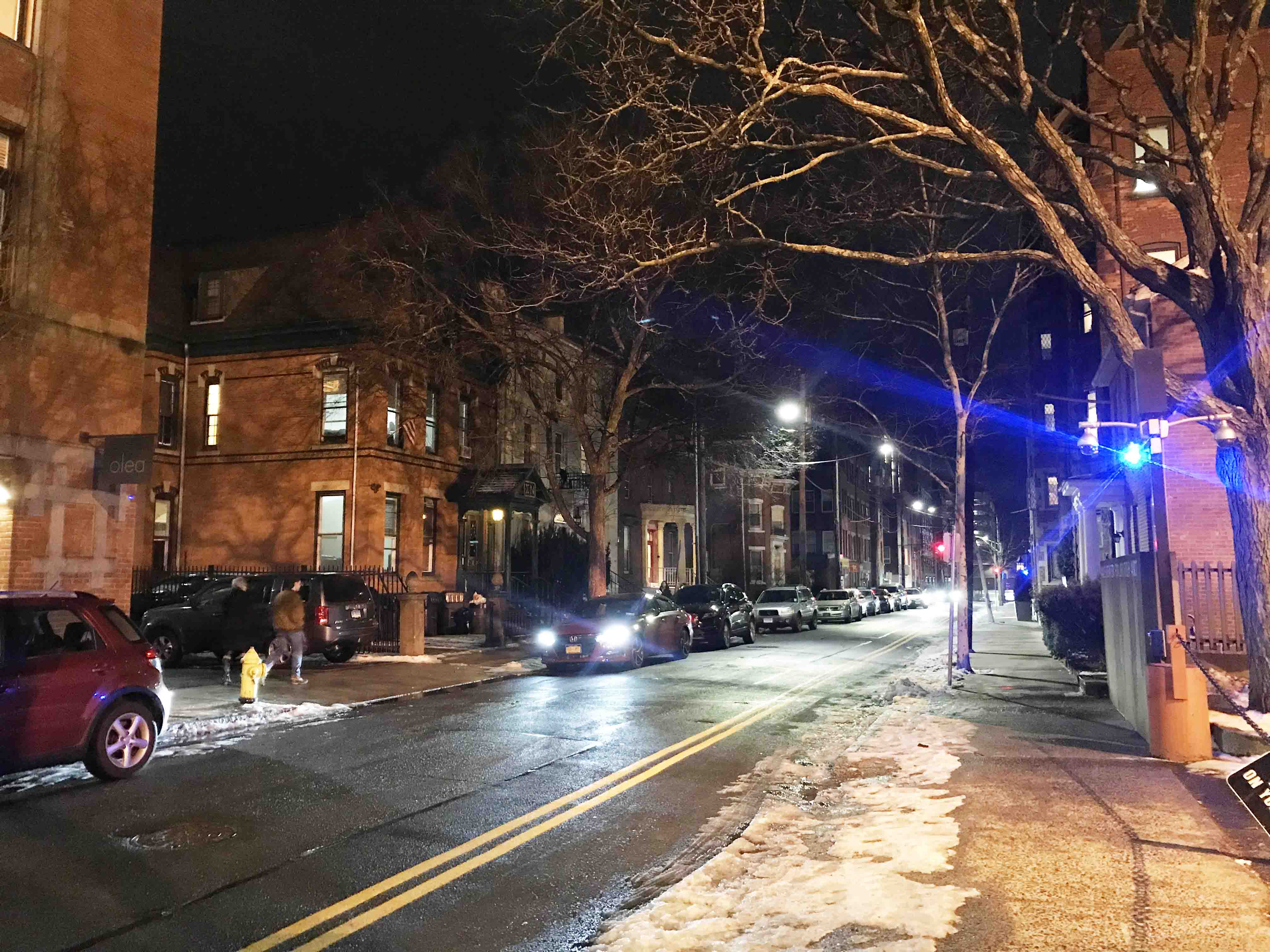
At around 2:45 a.m. on Jan. 12, Everest Fang ’20 woke up to banging at the front door of his High Street home. A man had used a hammer to break down the window’s plexiglass panel. The man ran in and out of the house — picking up a bicycle from a back cupboard — in about 10 seconds, according to Fang.
Two days later, on the night of Jan. 14, a man broke into an off-campus house on Lynwood Place while four Yale seniors were home watching basketball. Larry Fulton ’19 heard a loud bang and then saw that the front door lock had been damaged and was flung open. The man, who seemed middle-aged, promptly came down the stairs and apologized, saying that he was looking for his friend “Keith, for a frat party,” and then left the house. The man who broke in had not touched anything in the house.
“It seems that something should be done given that High Street and Lynwood [Place] are a block away from campus, and it’s basically the Wild West,” said Nick Hernandez ’19, who lives off campus on Lynwood Place and told the News he also has experienced breaches in security.
These break-ins are not uncommon for Yale students living in off-campus residencies. University spokesperson Karen Peart said that the Yale Police Department is working closely with the New Haven Police to prevent further break-ins and ensure that the University community is up-to-date on threats. According to Peart, the YPD Detective Division confers with its New Haven Police Department counterparts on a daily basis.
“[The Yale Police Department] has focused patrols which encompass many areas where students live off campus,” Peart told the News. “The NHPD has also added additional uniformed walking beats in response to the recent burglaries.”
Peart said that Yale Police Chief Ronnell Higgins provides the community public safety updates throughout the year, keeping members informed of crime trends on and around campus and offering suggestions on ways to improve personal safety. In each of the Yale Alerts about January break-ins, Higgins attached a link to a Yale website page of safety tips, which included subpages on public safety and apartment safety. On the page about apartment safety, Higgins suggested to “leave a TV or radio on and consider using lights with timers if you are away for an extended period of time.”
Simon Soros ’20, who lives in the High Street house with Fang, stressed that these incidents were less likely to happen while students were on campus — noting that most incidents take place when Yalies are away on break — and perpetrators are probably aware of this information.
Hernandez, who lives off campus at a team house on Lynwood Place, told the News of specific incidents of breaches of safety. He said that during the summer of 2017, a female Dartmouth student who was subletting a room in the Lynwood Place house where he currently resides woke up to a stranger opening the door of her room. The man then ran away. When Hernandez arrived early after a fall break in his junior year, he was sitting on the couch when he noticed a man reaching into his home through a slightly ajar window.
Admitting that he was not very “well-versed” in Yale’s safety policies, Hernandez said it feels as though not much security coverage exists unless you live on campus.
Hernandez noted that even though an easy fix to off-campus security issues likely does not exist, Yale should install blue phone safety systems — brightly lit exterior phones with an emergency call button for direct communication with the Yale Police — at off-campus areas with a high volume of undergrads.
Peart told the News that Yale Public Safety maintains over 525 blue phones on campus and in areas considered “off-campus.” In a map published by Yale, the majority of the lights cluster around Yale residential buildings and classrooms, while a few are located at public locations like the Air Rights Garage and the CT Medical Health Center.
Since Hernandez’s team house is on Lynwood Place, he has “heard stories” about break-in incidents from past tenants and other off-campus students.
“The biggest thing is that you understand what you’re getting into, and you’re just careful about locking your doors and windows,” said Hernandez. He said that many of the off-campus break-in incidents he has heard involved strangers entering through doors left open, rather than actively picking locks.
However, other Yale students interviewed by the News said that they had not experienced off-campus breaches in security.
Diana Ruiz ’20 said that she feels “pretty safe” living off campus, saying that High Street is so close to campus that it does not feel like it is off campus. James Nicholas ’19, who also lives on High Street, told the News that he has not heard about break-ins and has no specific concerns.
“Our house has not had any real problems with robberies or break-ins, and our doors lock automatically which I’m sure is helpful,” said Garrett Gile ’19, who also lives on High Street.
Peart echoed this sentiment to the News and said that burglaries often occur when a thief finds a window open or a door unlocked.
Peart also noted that the LiveSafe app is another way for members of the community to report a crime, or unsafe conditions, anonymously via text message. She said that LiveSafe enables both on and off–campus community members to engage directly with the YPD to prevent and respond to safety and security incidents.
The Yale Security Department has offices located at 57 Lock Street and 79 Howe Street and on West Campus.
Sammy Westfall | sammy.westfall@yale.edu







